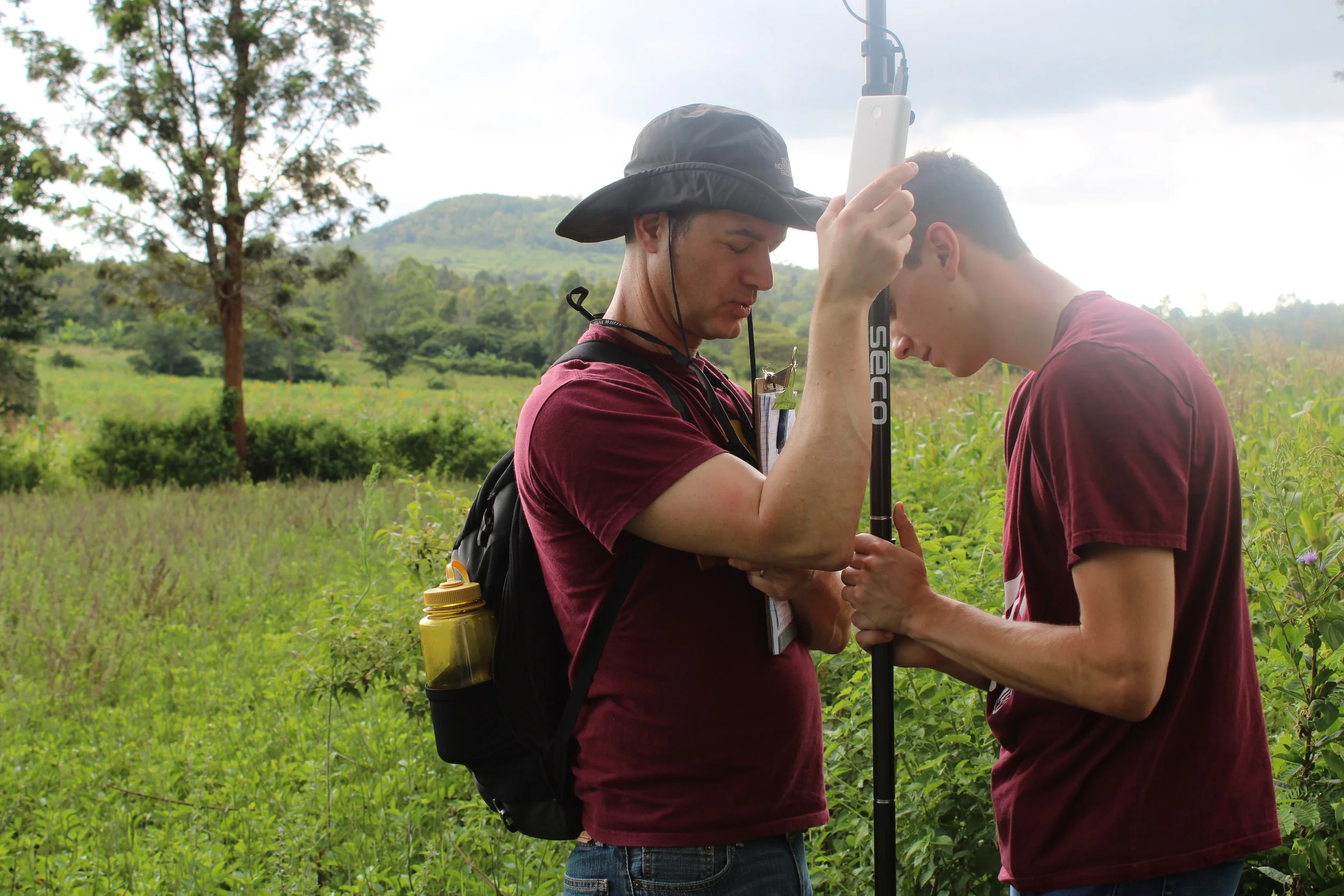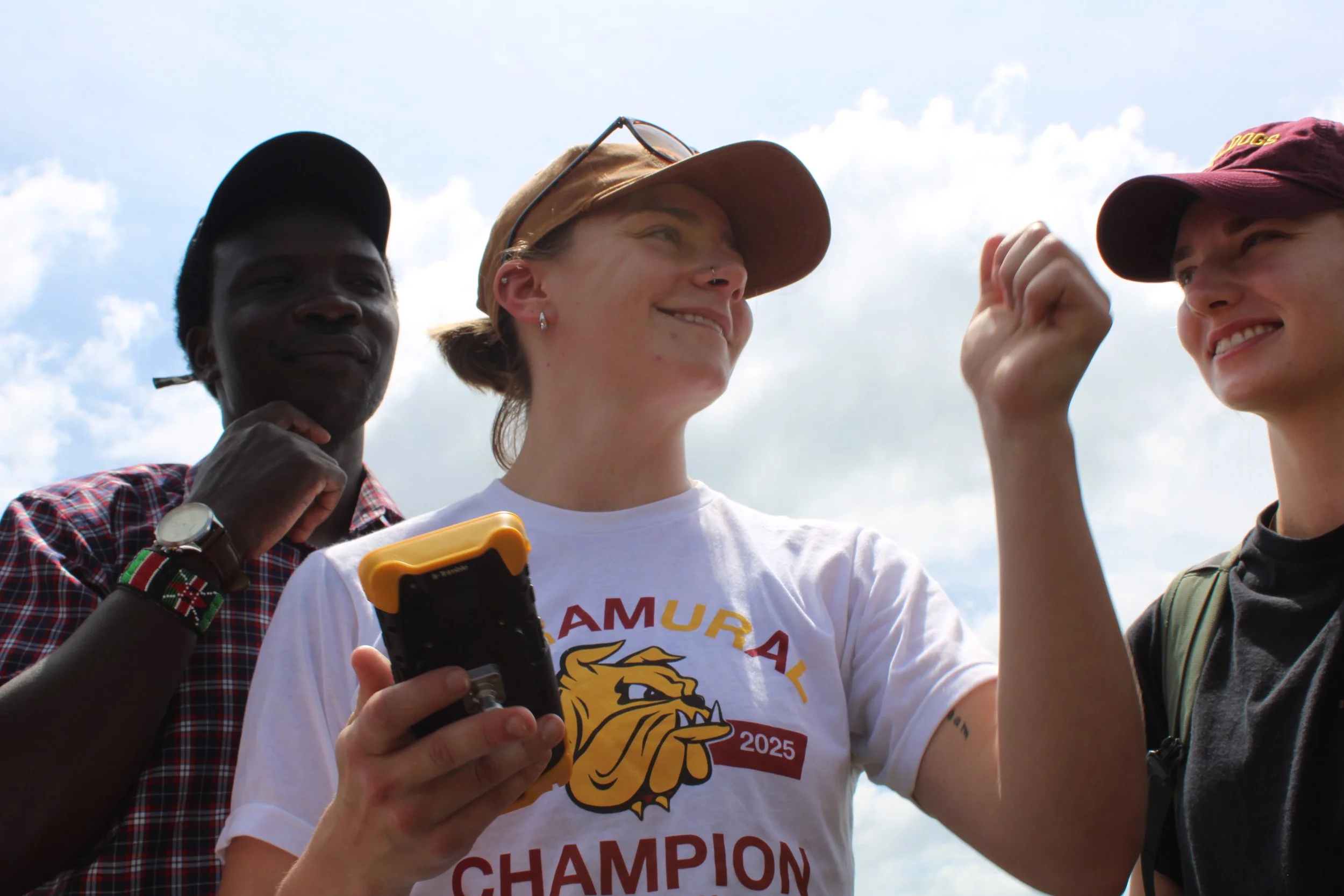UMD’s Chapter of Engineers Without Borders Provides Clean Water to Communities in Kenya
Engineers Without Boarders - University of Minnesota Duluth chapter members in the field working on their clean water project in Kenya. Photo provided by Ryan Schabert
Engineers Without Borders (EWB) is a national non-profit humanitarian organization that contributes to communities worldwide and has its very own chapter here at UMD. The club is composed of a few professors and students from a variety of majors that meet weekly to discuss new plans for their various projects.
For their first project in 2019, the Duluth chapter of EWB worked in Nyansakia, Kenya to build a water distribution system. During their five years of development, they have been able to get clean water to the 1,500 people who live in the village.
Over the past year the group was able to start their second project, which is located in Kirengo, Kenya with the same goal: to build a drinkable water system.
“In December 2024, the UMD team travelled to Kirengo to do the initial assessment trip. The purpose of this trip was to meet the community, gather topographical survey data, learn about the needs and demographics of the community, and start to collect input on the project from leaders within the community,” said Ryan Schabert, the president of UMD’s EWB chapter.
“Since returning, the team has drilled the first of five boreholes within the community and has started designing the first section of the distribution system, which is on track to be completed by summer 2026. This first project section, once complete, will bring water to about 1/5 of the community, or around 1,600 people total,” Schabert continued.
This past summer, eight students, one professor and one local contact went to Kirengo on a pre-trip to survey the ground and fully plan out how to build the water distribution system. The group of 10 left for two weeks to check out the project in Nyansakia and get more information about the Kirengo project.
“The UMD Engineers Without Borders Chapter aims to complete a water sourcing and distribution project in the rural community of Kirengo, Kenya over the next five to eight years,” Schabert said.
The project will provide clean drinking water to the Kirengo community which consists of roughly 8,000 people that are facing intense water scarcity. Currently these individuals must walk multiple hours a day in order to reach a water source that often isn’t sanitary.
“This project will alleviate that issue by bringing water from an underground aquifer to tap stands conveniently located at central locations throughout the community,” Schabert said.
Meanwhile in Duluth, EWB is in the process of designing sharps disposable boxes for public use in Duluth over the next couple of years. A sharps disposable box is a safe container to prevent injury from people who are putting needle points, razor blades or any other sharp metal object into the container as well as protecting the people who are going to collect the sharp metals. They are partnering with professors on campus, as well as local businesses to survey whether or not certain areas are in a higher need for the boxes.
Interested in joining Engineers Without Borders? The group holds weekly meetings on Mondays in Voss Kovach 221 for the Kirengo project at 5:30 p.m. and Thursdays at 6 p.m. in room Swenson Civil Engineering 231 for the Duluth Sharps Boxes project. If you are interested in helping the club bring safe drinking water to thousands or keeping the streets clean here in Duluth, EWB has a few fundraiser events coming up, including a bean bag tournament next semester!



